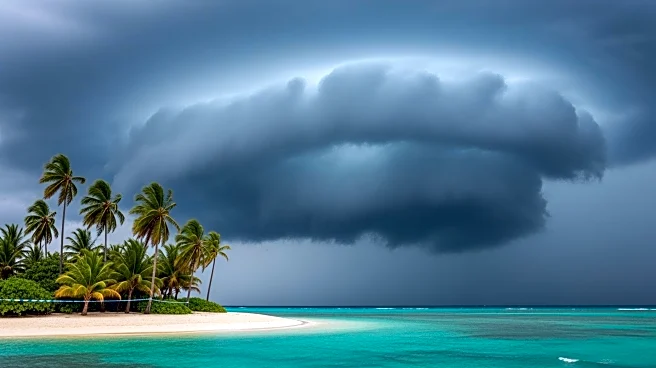What's Happening?
Hurricane Melissa, a powerful Category 5 storm, has caused significant destruction across Cuba, Jamaica, and Haiti. The hurricane made landfall in Jamaica with winds reaching 185 mph, one of the strongest Atlantic hurricanes on record, before moving towards
Cuba. In Haiti, the storm resulted in the deaths of 25 people in Petit-Goâve due to flooding. The storm has led to widespread power outages, with 77% of Jamaica without electricity. In Cuba, approximately 735,000 people are in shelters, and significant damage has been reported, including collapsed houses and blocked roads. The U.S. Defense Department has been involved in monitoring the storm, with the Hurricane Hunters collecting data for the National Hurricane Center.
Why It's Important?
The impact of Hurricane Melissa is severe, affecting infrastructure, housing, and the economy in the Caribbean region. The storm exacerbates existing challenges in Cuba, which is already facing an economic crisis with power blackouts and shortages of fuel and food. The destruction in Jamaica and Haiti highlights the vulnerability of these nations to natural disasters, potentially leading to long-term economic and social challenges. The U.S. government's involvement in disaster response underscores the international dimension of the crisis, as it deploys teams to assist in relief efforts.
What's Next?
As Hurricane Melissa continues its path, it is expected to weaken but still pose a threat to the Bahamas and potentially Bermuda. The affected countries are in the process of assessing the damage and beginning recovery efforts. Jamaica plans to reopen airports to facilitate the distribution of emergency supplies. The U.S. is deploying additional resources to aid in search and rescue operations. The long-term recovery will require significant international aid and support to rebuild infrastructure and provide for displaced populations.















